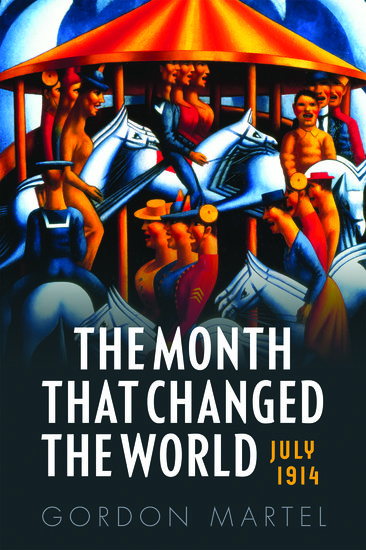July 1914 was the month that changed the world. On 28 June 1914, Archduke Franz Ferdinand was assassinated, and just five weeks later the Great Powers of Europe were at war. But how did it all happen? Historian Gordon Martel, author of The Month That Changed The World: July 1914, is blogging regularly for us over the next few weeks, giving us a week-by-week and day-by-day account of the events that led up to the First World War.
By Gordon Martel
Would there be war by the end of the day? It certainly seemed possible: the Serbs had only until 6 p.m. to accept the Austrian demands. Berchtold had instructed the Austrian representative in Belgrade that nothing less than full acceptance of all ten points contained in the ultimatum would be regarded as satisfactory. And no one expected the Serbs to comply with the demands in their entirety – least of all the Austrians.
When the Serbian cabinet met that morning they had received advice from Russia, France, and Britain urging them to be as accommodating as possible. No one indicated that any military assistance might be forthcoming. They began drafting a ‘most conciliatory’ reply to Austria while preparing for war: the royal family prepared to leave Belgrade; the military garrison left the city for a fortified town 60 miles south; the order for general mobilization was signed and drums were beaten outside of cafés, calling up conscripts.

How would Russia respond? That morning the tsar presided over a meeting of the Russian Grand Council where it was agreed to mobilize the thirteen army corps designated to act against Austria. By afternoon ‘the period preparatory to war’ was initiated and preparations for mobilization began in the military districts of Kiev, Odessa, Moscow, and Kazan.
Simultaneously, Sazonov tried to enlist German support in persuading Austria to extend the deadline beyond 6 p.m., arguing that it was a ‘European matter’ not limited to Austria and Serbia. The Germans refused, arguing that to summon Austria to a European ‘tribunal’ would be humiliating and mean the end of Austria as a Great Power. Sazonov insisted that the Austrians were aiming to establish hegemony in the Balkans: after they devoured Serbia and Bulgaria Russia would face them ‘on the Black Sea’. He tried to persuade Sir Edward Grey that if Britain were to join Russia and France, Germany would then pressure Austria into moderation.
How would Britain respond? Sir Edward Grey gave no indication that Britain would stand shoulder-to-shoulder with the Russians in a conflict over Serbia. His only concern seemed to be to contain the crisis, to keep it a dispute between Austria and Serbia. ‘I do not consider that public opinion here would or ought to sanction our going to war over a Servian quarrel’. But if a war between Austria and Serbia were to occur ‘other issues’ might draw Britain in. In the meantime, there was still an opportunity to avert war if the four disinterested powers ‘held the hand’ of their partners while mediating the dispute. But the report he received from St Petersburg was not encouraging: the British ambassador warned that Russia and France seemed determined to make ‘a strong stand’ even if Britain declined to join them.
When the Austrian minister received the Serb reply at 5:58 on Saturday afternoon, he could see instantly that their submission was not complete. He announced that Austria was breaking off diplomatic relations with Serbia and immediately ordered the staff of the delegation to leave for the railway station. By 6:30 the Austrians were on a train bound for the border.
That evening, in the Kaiservilla at Bad Ischl, Franz Joseph signed the orders for mobilization of thirteen army corps. When the news reached Vienna the people greeted it with the ‘wildest enthusiasm’. Huge crowds began to form, gathering at the Ringstrasse and bursting into patriotic songs. The crowds marched around the city shouting ‘Down with Serbia! Down with Russia’. In front of the German embassy they sang ‘Wacht am Rhein’; police had to protect the Russian embassy against the demonstrators. Surely, it would not be long before the guns began firing.
Gordon Martel is a leading authority on war, empire, and diplomacy in the modern age. His numerous publications include studies of the origins of the first and second world wars, modern imperialism, and the nature of diplomacy. A founding editor of The International History Review, he has taught at a number of Canadian universities, and has been a visiting professor or fellow in England, Ireland and Australia. Editor-in-chief of the five-volume Encyclopedia of War, he is also joint editor of the longstanding Seminar Studies in History series. His new book is The Month That Changed The World: July 1914.
Subscribe to the OUPblog via email or RSS.
Subscribe to only history articles on the OUPblog via email or RSS.


Recent Comments
There are currently no comments.